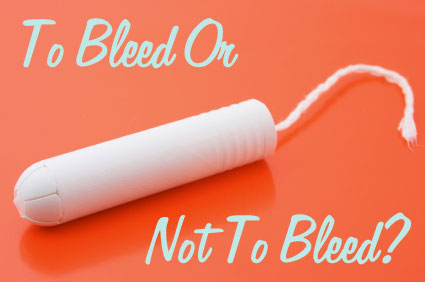
Here she is again, continuing on from Wednesday’s post - the amazing 36 year old ovarian cancer patient from Philly guest blogging about early menopause - Emily Beck.
The Dark Side of the Moon
I am not mystically inclined. I love The Lord of the Rings as much as the next person, but I have never been a druid (one of my friends in middle school claimed that she was), a sun worshiper or a witch (a college roommate was most assuredly one of these.) But one of the hardest things to adjust to about menopause has been losing my connection to the cycles of the moon.
For some people it’s probably hard to imagine missing anything about menstruating. (No more cramps? No more PMS? No more tampons? Where do I sign?!?) But cancer robs us of so much that we take for granted, and for those of us who are sent into either surgically or chemo-induced early menopause, it takes away the primary way in which most of us feel connected to the rhythms of our body, the hormonal cycles we often curse, but which define so much of what it means to be a woman.
In the year-plus before I was diagnosed with ovarian cancer, I was trying to get pregnant. I had begun the tedious (but fascinating) process of taking my basal body temperature and paying somewhat pathologically close attention to the nature of my vaginal discharge. Charts and notes related to my menstrual cycle piled up on my night table. I was peeing on ovulation detectors in the bathroom at my office, and rushing home to demand sex on the appropriate day. I was, to put it mildly, in tune with my body.
After my hysterectomy, it was as though the tuner connected to my hormonal cycles broadcast nothing but static. Without the signs to which I had grown accustomed (tender breasts, the changing texture of my discharge, and of course the thrills of a monthly period), I suddenly felt unmoored – disconnected from my woman-ness, and from the cycles of nature (the moon, the tide) that I had always associated with my monthly hormonal evolution.
I remember distinctly a stretch of time, probably during college, when the first day of my period continually fell on the same day as the full moon. Suddenly, I had a new sense of the ways in which my body and the experience of being a woman connected me with nature. It was pretty damn cool.
Now, over a year and a half post-hysterectomy, I am still searching for new ways to feel connected to the earth and to stay aware of my body’s rhythms. The patterns are new, but the goal is the same: to stay in touch with the physical essence of being a woman.
Have you gone through early menopause? Does it make you feel like you are missing part of your womanhood? How have you adapted? Any tips of suggestions?
![]()
![]()
 “Everything Changes is, without doubt, the most forthright, emotionally sophisticated, and plain-old valuable book of its kind I've seen.”
“Everything Changes is, without doubt, the most forthright, emotionally sophisticated, and plain-old valuable book of its kind I've seen.”












